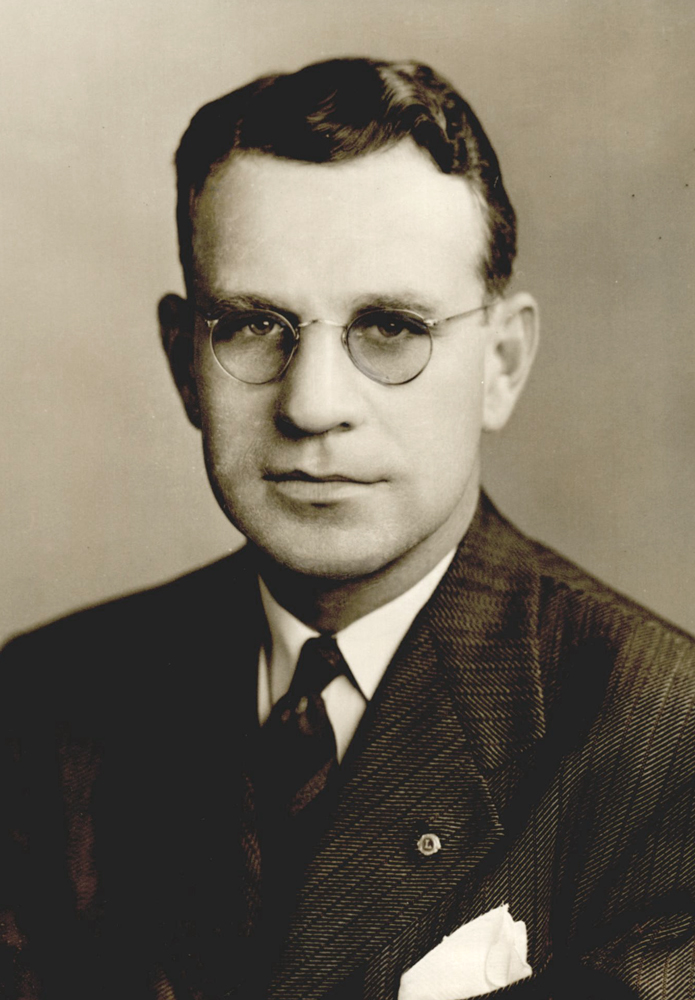
The Encyclopedia of Oklahoma History and Culture
CAMP, JOHN NEWBOLD (1908–1987).
"They don't call me "'Happy'" for nothing," once said John Newbold Camp, who was born on May 11, 1908, in Enid, Oklahoma, the son of Minnie C. Newbold and John R. Camp. Because he had a pleasant personality as an infant, his father nicknamed him "Happy." The moniker stuck, and as an adult, the younger Camp legally changed his name so that the jovial word would appear on ballots as he ran for public office. The elder Camp was engaged in the banking business in Blackwell and Douglas until he bought the bank in Waukomis in 1924 and moved his family there. Happy Camp graduated from Waukomis High School. He attended Phillips University, but by 1928 he began work at the Waukomis State Bank, and he eventually became the president and board chair. In November 1930 he married Vera Overman, and the couple had four children: Patricia, Kay, John III, and Steven Richard.
Happy Camp was president of the Garfield County Young Republicans and chair of the Garfield County Republican Party. He was elected to the Oklahoma House of Representatives in 1942, and he served there until 1963. He became the first Republican to chair a state House committee, the Committee on Banks and Banking. He authored the Industrial Finance Corporation Act and the Uniform Commercial Code, and he played a major role in the passage of the Insurance Code and the Corporation Code. While he was in the state legislature, people credited Camp with building the power base that Republicans used in the 1960s to gain the governor's office. In 1966 Camp narrowly lost the Republican gubernatorial nomination to Dewey Bartlett, who won in the general election. The new governor appointed the former state legislator as chair of the Oklahoma State Board of Public Affairs, and he served in 1967 and 1968.
In November 1968 Camp won election to Oklahoma's Sixth District seat in the U.S. House of Representatives, and he served from January 3, 1969, to January 3, 1975. He sat on the Interior and Insular Affairs and the Science and Astronautics committees and the Indian Affairs, Irrigation and Reclamation, Mines and Mining, Public Lands, and NASA Oversight subcommittees. At the time he left office, he was the ranking minority member of the Mines and Mining Subcommittee. Camp was considered a conservative, and he was known generally to support Nixon administration policy, especially concerning the Vietnam War. His legislative activity generally followed the interests of his farming and oil-producing constituents. Camp's identification with the Nixon administration may have been his downfall, however. In the aftermath of the Watergate scandal, Democrats made large gains in Congress in the 1974 general election, and Glenn English defeated Camp.
The Republican returned to Waukomis, and he continued his interest in business and local politics. In 1982 he co-chaired "Republicans for Nigh" and helped Democrat George Nigh win election as governor. On September 27, 1987, Happy Camp suffered a heart attack and died in Enid. He was interred in Waukomis Cemetery.






